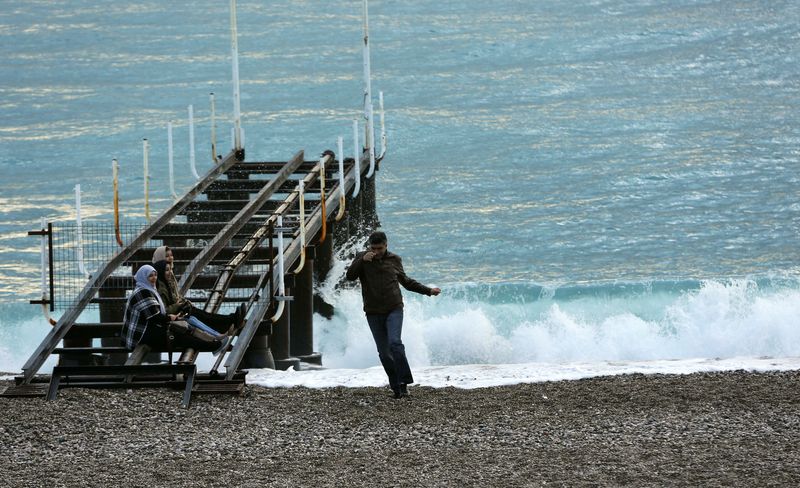ISTANBUL (Reuters) – Tourism in Turkey is set to return to near pre-pandemic levels this year, boosting the crisis-hit economy with the help of a recent currency crash that has made it a more attractive destination than ever, industry officials say.
Despite the high hopes, hotel and tourism officials warned that sharp rises in utilities, food and wage costs will limit profits and broader benefits for an economy rattled by inflation soaring to a 20-year high.
The high season starts in May for Turkey’s Mediterranean and Aegean beaches and historic treasures.
Europeans especially are already booking trips in good news for President Tayyip Erdogan’s government, which has adopted a sweeping new economic policy relying heavily on foreign income to curb the current account deficit.
“Early bookings started with high speed. We’ve got strong bookings especially from Britain. They’re almost in line with 2019,” said Turkish Hoteliers Federation vice chair Bulent Bulbuloglu.
He said early bookings traditionally start with Britons and are taken as a reference for the season, with strong demand also expected from other European countries, Russia and Central Asia.
Foreign arrivals in Antalya, among Turkey’s most popular holiday destinations, totalled 117,818 in January, matching the 2019 level, data showed.
But a further escalation of the Russia-Ukraine crisis may pose some risk for the season, Bulbuloglu added.
“We get good signals from Germany, Belgium, Netherlands and the Scandinavian market too… Turkey has become a destination where visitors can have the most affordable holidays with their own currencies. It is now a paradise for foreigners.”
The lira weakened 44% against the dollar last year and all-inclusive deals make Turkey even cheaper.
‘SERIOUS PROBLEMS’ WITH COSTS
“A five-star hotel’s average price per night is around 70 euros in Turkey, whereas it is around 200 euros in Spain,” said Turkish Tourism Investors’ Association head Oya Narin.
Finance Minister Nureddin Nebati last week forecast tourism revenues of $34.5 billion this year, up from 2021’s $24.5 billion. They were $34.5 billion in 2019.
Erdogan’s new economic policy aims to cut inflation by creating a current account surplus, with tourism revenues a key factor.
“It seems we will achieve the $34-$35 billion target. But revenues are not enough themselves. There is also the costs angle,” said Narin.
She said foreign arrivals will be near 2019 levels, or just 10% below, but making a profit matters more to the industry than how many millions come.
“We have serious problems with the course of our costs. We are facing rampant cost increases regarding electricity, gas and other costs,” Narin said.
Turkey’s annual inflation hit 48.69% in January.
Ulkay Atmaca, general manager of Innvista Hotel Belek in Antalya, said he had to increase prices by 42% for this season but still cannot compensate for the rising costs.
Hotel Association of Turkey head Muberra Eresin said sharp cost increases were eroding industry margins, with costs rising 60%-65% in just one month.
“We have already signed contracts with operators and set our prices. It’s not possible to reflect all these additional costs on our prices now,” she said.
(Writing by Ceyda Caglayan; Editing by Jonathan Spicer, Daren Butler and Nick Macfie)






















